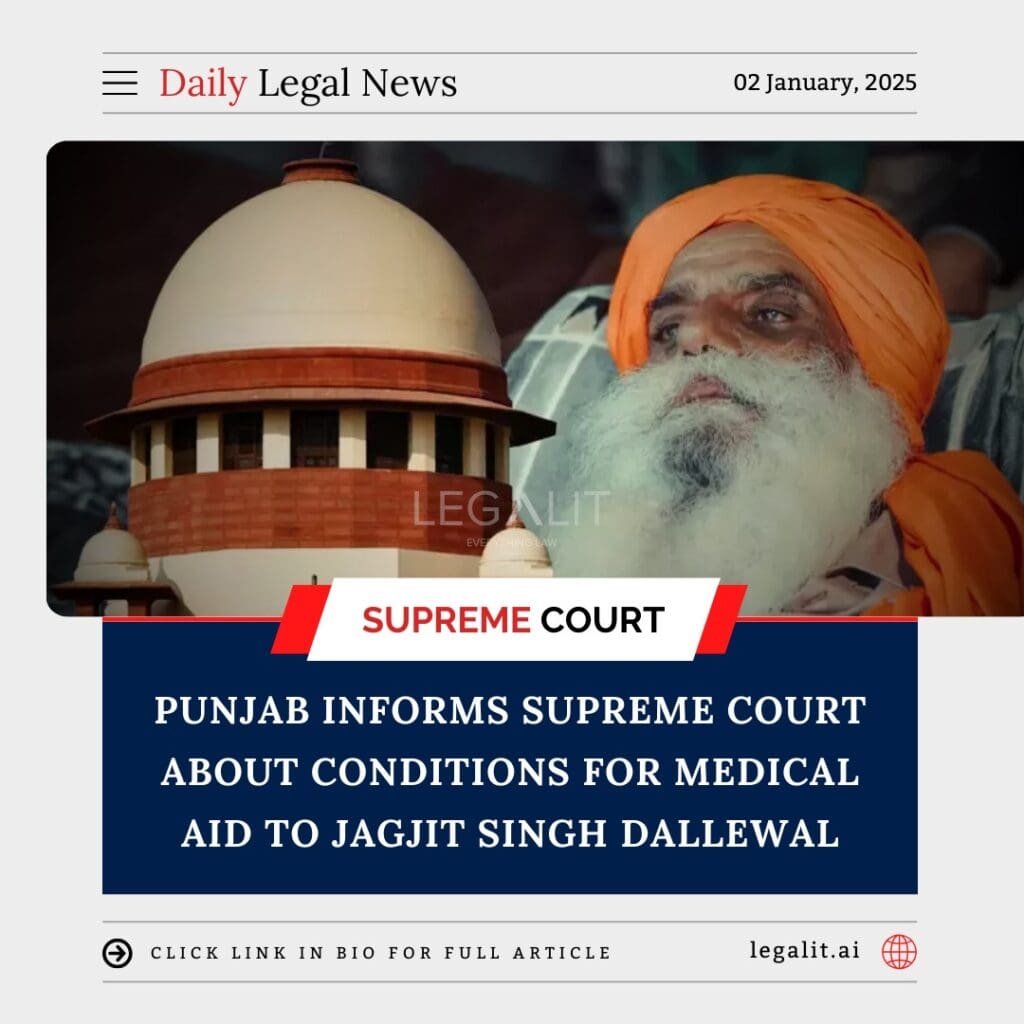
The Punjab government informed the Supreme Court that Jagjit Singh Dallewal, a farmer leader on hunger strike, might agree to receive medical aid under specific conditions. This revelation came during the ongoing hearing concerning Dallewal’s deteriorating health and the government’s alleged inaction.
Background
Jagjit Singh Dallewal, a prominent farmer leader, initiated a hunger strike to press for various demands concerning farmers’ rights and welfare. His health has since worsened, prompting legal intervention to ensure his safety. Earlier, the Supreme Court expressed its displeasure over Punjab’s failure to provide adequate medical care despite Dallewal’s critical condition.
Punjab’s Statement
The state government, represented by its counsel, informed the Supreme Court that Dallewal might agree to receive medical treatment if his demands are addressed in a dignified manner. Punjab assured the Court that it had taken all possible steps to convince him to end his hunger strike but emphasized the challenges of forcing medical intervention without his consent.
The government also outlined measures taken to facilitate dialogue with Dallewal and his supporters, aiming to resolve the situation amicably.
Supreme Court’s Response
The Court acknowledged the complexity of the issue, balancing individual rights with the state’s responsibility to preserve life. It urged the Punjab government to intensify efforts to negotiate with Dallewal and ensure that his health is not jeopardized further.
The bench also reiterated its earlier stance that the state has a duty to provide medical assistance, even against an individual’s will, in life-threatening situations.
Legal Perspective
Under Indian law, the right to life enshrined in Article 21 of the Constitution includes the right to refuse medical treatment. However, this right is not absolute and may be overridden when a person’s life is in imminent danger.
The Supreme Court has consistently emphasized the state’s responsibility to safeguard public health and prevent avoidable loss of life, even in cases involving voluntary starvation.
Implications
- Humanitarian Concerns: The case highlights the delicate balance between respecting individual autonomy and the state’s duty to protect life.
- Farmers’ Agitations: Dallewal’s hunger strike underscores the persisting issues faced by farmers, potentially reigniting broader agitations.
- Legal Precedents: The Court’s eventual ruling may set a precedent for handling similar situations involving hunger strikes or refusals of medical treatment.
Conclusion
The Punjab government’s update to the Supreme Court reflects ongoing efforts to resolve the matter while addressing Dallewal’s concerns. The Court’s directives, focusing on preserving life and dignity, emphasize the importance of proactive governance in such sensitive situations. The case remains a poignant reminder of the challenges involved in balancing individual rights with public welfare.